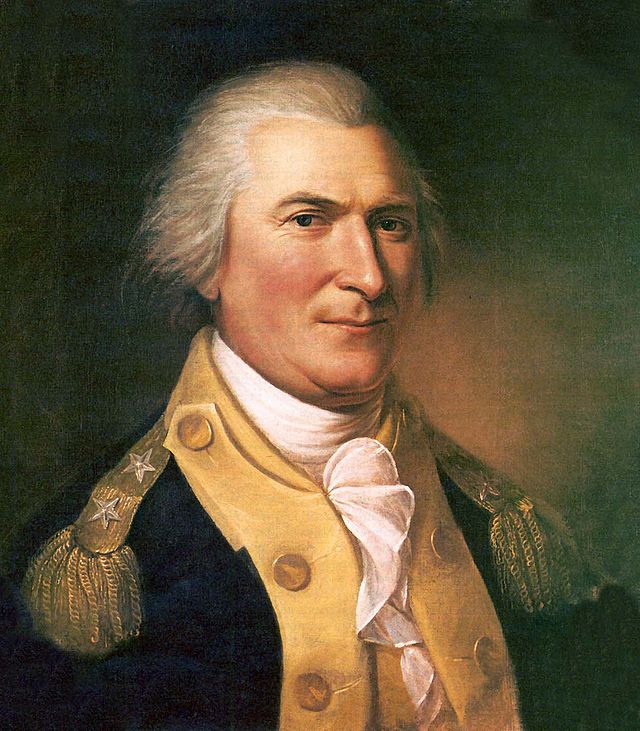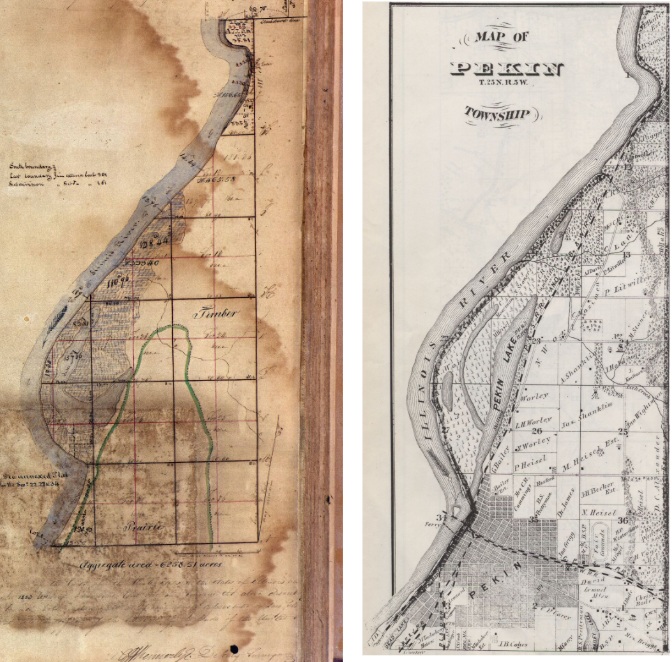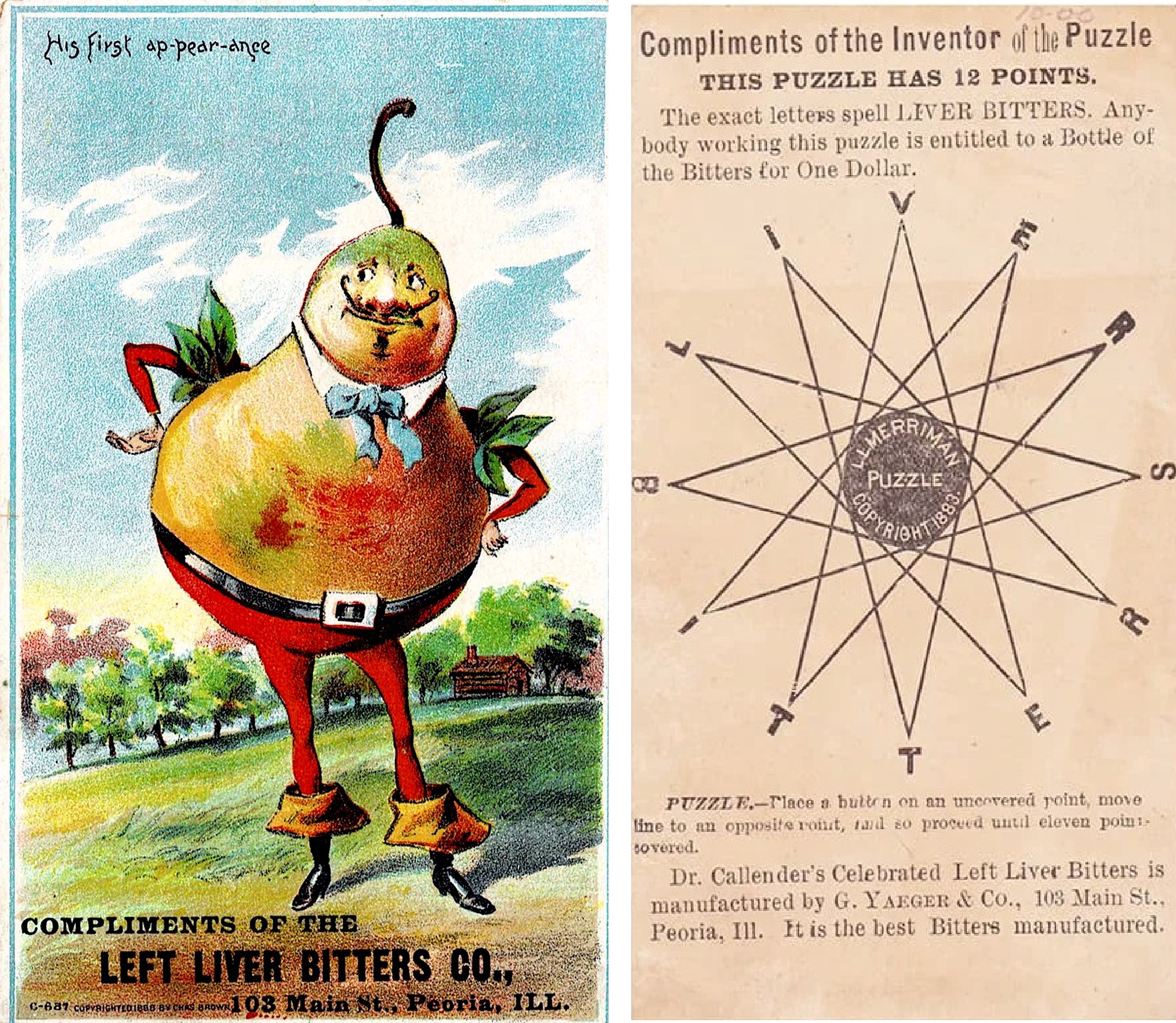In our series on the history of the Pekin Public Library, we have told the story of the planning and construction of Pekin’s Carnegie library. The new library opened to the public on Dec. 10, 1903, and was formally dedicated four days after that.
Visitors to the library were able to admire three sculpted busts of William Shakespeare, Johann Wolfgang von Goethe, and Henry Wadsworth Longfellow. These busts were given to the library in the summer of 1902 by local businessman Henry Block, of Schipper & Block and Block & Kuhl. In her 1902-1903 historical account of the library, Miss Mary Gaither describes Block’s donation in these words:
“This sketch is not complete without mention of the beautiful and appropriate gifts of Mr. Henry Block, who, in his travels abroad this summer, remembered our Library, in the selection of three portrait busts, of Shakespeare, Goethe and Longfellow, which will adorn our rooms, and remind us of the evolution of our literature, through Saxon, and Briton, and German and Celtic lines, – to our own cosmopolitan era, and our own American authors.”
These busts were displayed in the Browsing Room just behind the main book stacks on the main floor of the library. The purpose of the Browsing Room was to enable patrons to take books from the stacks and look through them at leisure, without going out to the main reading rooms.
In addition to the busts that Henry Block donated, a bronze bust of President William McKinley was donated by the downtown business Steinmetz and Kaylor, and a number of fine engravings were donated by Mrs. John Nolte, Mrs. Ella Barber, and The Hawthorne Club. Pekin’s Carnegie library also boasted a number of stained glass windows, including a set of five depicting landscapes and rustic scenes around the world.
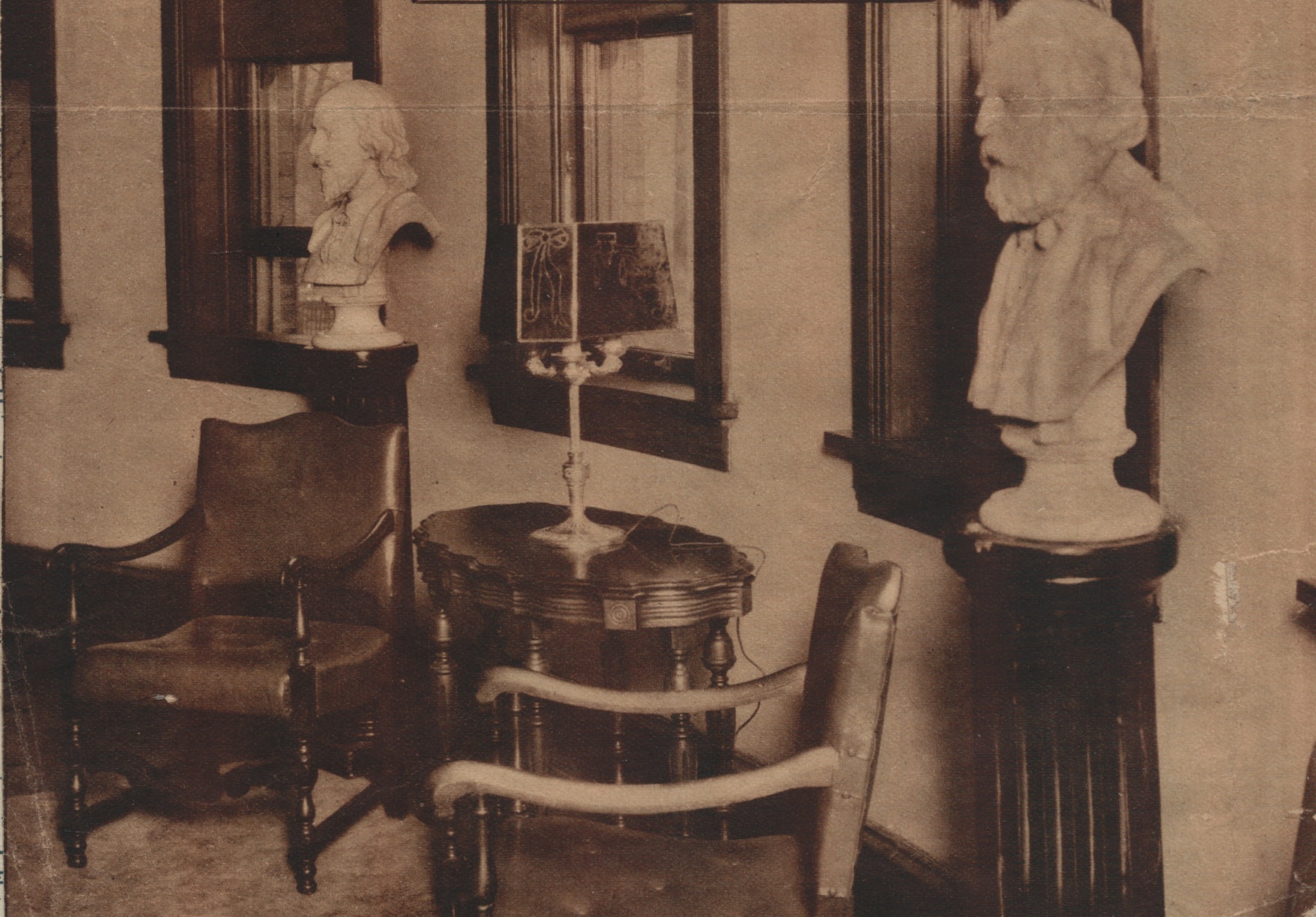
A further adornment of the library was a tall, antique regulator clock that was purchased by the Pekin Woman’s Club and donated to the library on Feb. 22, 1904, about two months after the new library opened to the public. This clock at first stood in one of the library’s reading rooms.
Around 35 years after the Pekin Woman’s Club’s donation of a clock, the library received another beautiful antique clock, given in memory of the late Pekin Mayor Everett W. Wilson. The donation of this clock is reported in an clipping from the Pekin Daily Times dated 28 Aug. 1940 that is preserved in the library archives, as follows:
“The Pekin public library has recently been given a very fine clock by Mrs. Everett W. Wilson and her sons. In making this very useful and beautiful gift to the library, as a memorial for the late Everett W. Wilson, Mrs. Wilson and her sons added much to the advantages and beauties of the library fittings.
“The clock is of solid walnut, elaborately hand-carved. The figures on the dial are hand-engraved and the phases of the moon are shown on the dial. It is equipped with tubular chimes, both Westminster and Whittington, which ring on the quarter hour, the half hour and the hour.
“Older citizens will recall that the library building was built during the period when the late Everett W. Wilson was mayor of Pekin. It was a matter of great pride to him that he had been helpful in securing for the citizens of Pekin the excellent building which has served the library patrons for almost 40 years.”
A methodical search of the library board minutes from that period has failed to determine the exact date of this donation. Mayor Wilson died in New York City on April 25, 1938. That date, along with the clipping’s date of 28 Aug. 1940, enables us to narrow down the date of this donation to the summer of 1940. The Wilsons left Pekin and moved to Peoria in 1902. Other news articles in our archives state that that their clock was crafted in Bavaria in the latter half of the 1800s, and stood in the Wilsons’ homes in Pekin and Peoria for many years. In Pekin, Mayor Wilson and his family had lived on S. Fifth St., and the former Wilson home is now Abts Mortuary.
In time, the children of Pekin came to distinguish between the Pekin Woman’s Club’s regulator clock and the Wilsons’ Bavarian clock as “the Grandmother clock” and “the Grandfather clock,” as if the two clocks were an elderly married couple – but they went through a few years of separation when the Carnegie library was replaced by a new library in the 1970s.
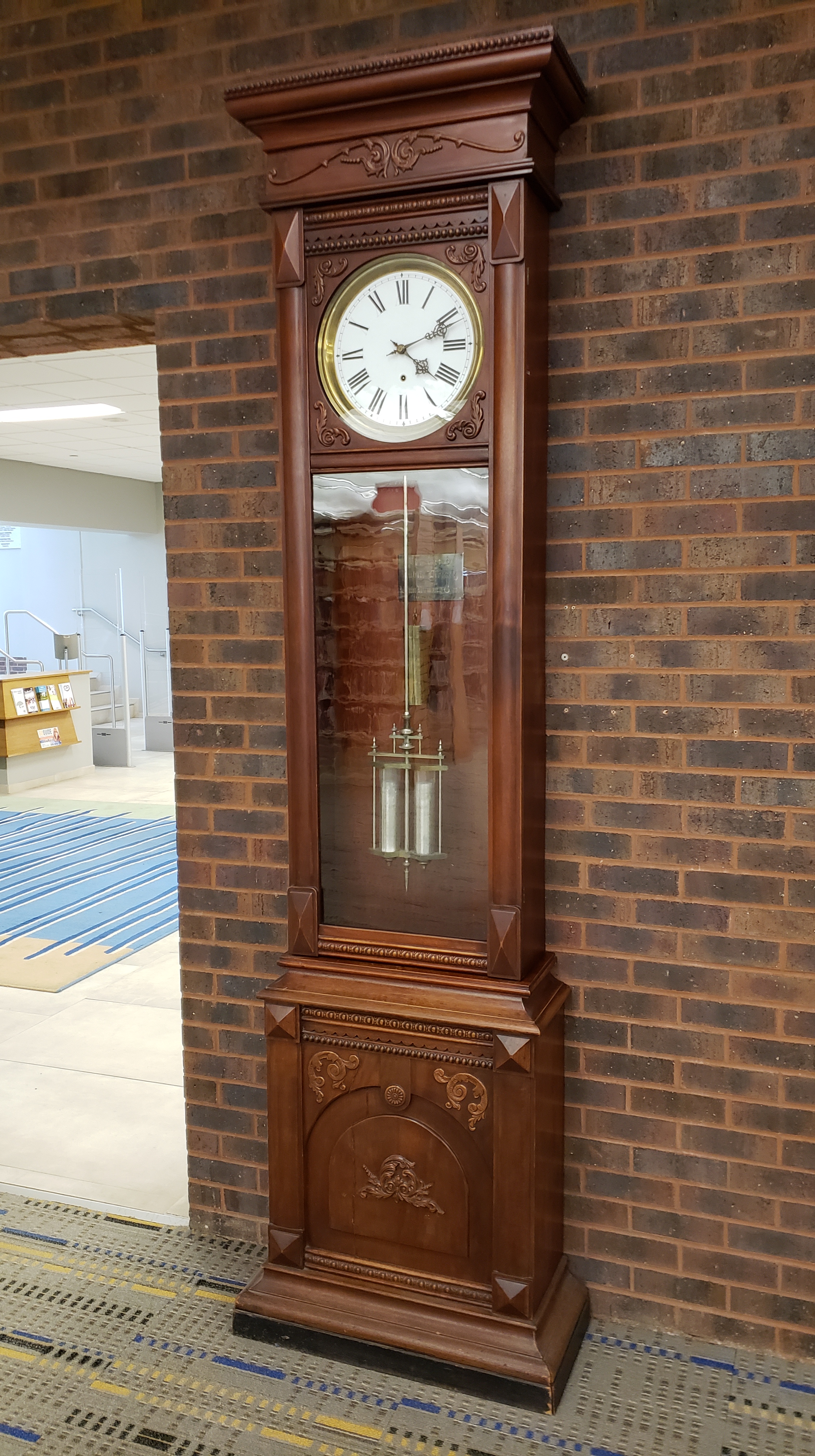
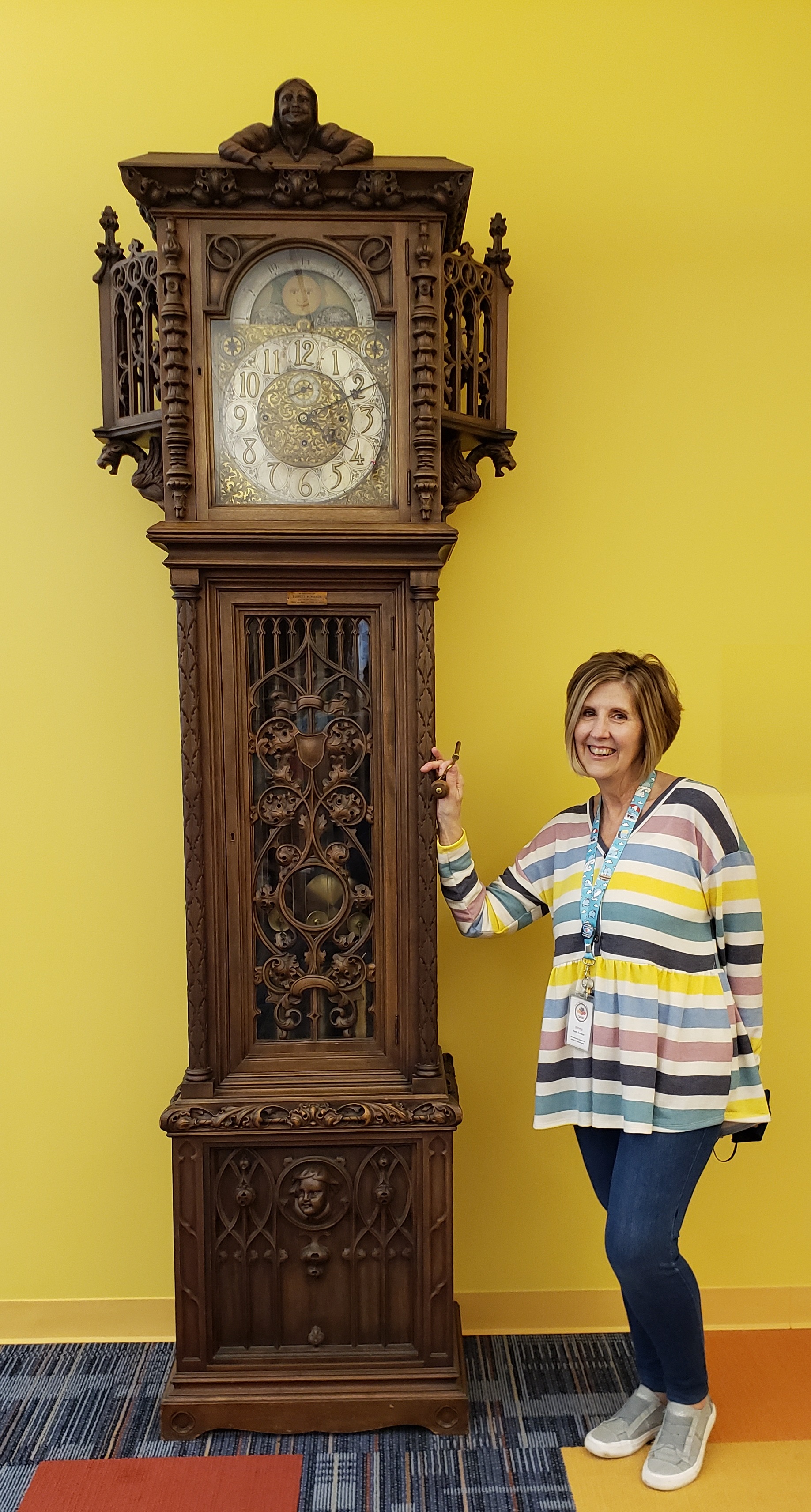
After adding beauty to the library for many decades, on Aug. 31, 1974, the clocks and most of the old library’s furnishings and fixtures were sold in an auction overseen by Mike Fahnders. However, before the auction, a “Save the Clocks” community group was formed. That group then became a committee of the Friends of the Library. So, by auction time the Friends and the Pekin Civic Chorus had worked out a plan to purchase the library’s historic Grandfather and Grandmother clocks. The Grandfather clock was purchased for $4,000 by George Udry on behalf of the Friends, and the 1904 Grandmother clock was purchased for $1,650 by Chic Renner on behalf of the Civic Chorus.
The Grandfather clock was then restored and placed in the Children’s Department of the new library, where it continues to chime to this day. The Grandmother clock, however, was stored for a few years in a number of Pekin homes, with the intention of placing it in a proposed Tazewell Historical Museum. When that plan foundered, the Pekin Civic Chorus and Pekin Woman’s Club donated the clock back to the library on Oct. 15, 1979, whereupon it was placed in the Adult Services Department, where it still tells the time.
During the 1974 library auction, the Friends of the Library also secured the five stained glass windows. The Friends donated them back to the library on Dec. 9, 1975, and they were installed in the library lobby, where they remained until the 2015 remodel and expansion of the library. Since then, the windows have been displayed in the library’s Local History Room.
However, the current whereabouts of the busts of Shakespeare, Goethe, Longfellow, and McKinley, which were purchased by private individuals, are unknown.
Later, when this series reached the point of the replacement of the Carnegie library with the present library structure, we will return to the story of the “Save the Clocks” committee and tell its story at greater length.
Next week we’ll revisit the moment when the Pekin Public Library adopted the Dewey Decimal Classification system.




